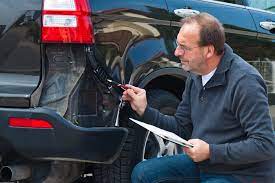In the world of automotive transactions, whether buying, kfz gutachter bochum selling, insuring, or settling disputes, the role of a car appraiser becomes pivotal. A car appraiser serves as a knowledgeable and impartial evaluator of a vehicle’s value, providing essential expertise in determining its worth under various circumstances. Let’s delve into the details of what a car appraiser does, why their role is crucial, and how they go about their work.
What Does a Car Appraiser Do?
A car appraiser assesses the value of a vehicle based on several factors including its make, model, year, condition, mileage, and market demand. Their evaluations are sought in a variety of situations:
- Buying and Selling: Before buying or selling a vehicle, it’s prudent to get an appraisal to ensure a fair price. Appraisers use their expertise to provide an unbiased valuation based on current market conditions and the vehicle’s specific attributes.
- Insurance Purposes: Insurance companies rely on car appraisers to determine the value of a vehicle for insurance coverage, especially for classic cars or vehicles with modifications that standard policies may not fully cover.
- Disputes and Legal Matters: In cases of disputes over vehicle value, such as in divorce settlements, estate distributions, or insurance claims, appraisers provide expert testimony and documentation to support their valuation.
- Restoration Projects: Enthusiasts restoring classic cars often seek appraisals to establish a baseline value and to track the appreciation of their investment over time.
Skills and Qualifications
Becoming a car appraiser requires a blend of technical knowledge, analytical skills, and industry expertise. Typically, appraisers have backgrounds in automotive repair, engineering, or have worked extensively in the automotive industry. Key skills include:
- Technical Knowledge: Understanding vehicle mechanics, components, and their impact on value.
- Market Awareness: Staying updated with current market trends and fluctuations in vehicle values.
- Attention to Detail: Thoroughly inspecting vehicles for condition, mileage, and any modifications that affect value.
- Impartiality: Providing unbiased appraisals that accurately reflect the vehicle’s worth without external influences.
Process of Appraisal
The appraisal process involves several steps to ensure a comprehensive evaluation:
- Initial Inspection: The appraiser conducts a physical inspection of the vehicle, examining its exterior, interior, engine, and any special features or modifications.
- Research and Analysis: Utilizing databases, market reports, and their own expertise, appraisers compare the vehicle to similar models to determine its current market value.
- Documentation: Appraisers compile detailed reports documenting their findings, including photographs and descriptions of the vehicle’s condition and any factors influencing its value.
- Report Presentation: Finally, the appraiser presents their findings to the client, explaining how they arrived at the valuation and answering any questions or concerns.
Conclusion
In conclusion, the role of a car appraiser is indispensable in ensuring fair and accurate evaluations of vehicles in a variety of contexts. Whether facilitating transactions, supporting insurance claims, or providing expert testimony, appraisers play a crucial role in maintaining transparency and fairness in the automotive market. Their specialized knowledge and impartiality make them trusted professionals sought after by buyers, sellers, insurers, and collectors alike.

